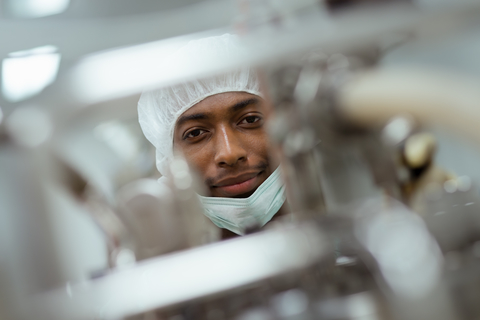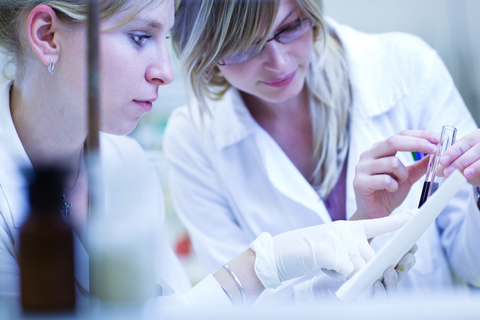
Toothpaste ingredient may help fight malaria
An ingredient commonly found in toothpaste could be employed as an anti-malarial drug against strains of malaria parasite that have grown resistant to one of the currently used drugs. This discovery, by researchers at the University of Cambridge, was aided by Eve, an artificially intelligent robot scientist based at the University of Manchester’s School of … Continue reading Toothpaste ingredient may help fight malaria
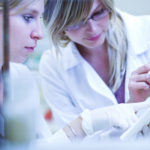
Accelerating drug discovery in kidney diseases
A new consortium to accelerate the discovery of novel drugs to treat kidney diseases was announced on November 6th. The NEPLEX (nephron on a chip with cellular and extracellular matrix complexity) consortium, comprising leading academic institutions including the Universities of Bristol and Cambridge, and Evotec AG, will combine key technologies to develop and build a … Continue reading Accelerating drug discovery in kidney diseases

3D printed microscopes to boost science in developing countries
The University of Bath is part of a new £1m research project that is looking at using cheap consumer electronics and 3D printed parts to create high quality scientific and medical devices at a fraction of the cost of alternatives. Dr Richard Bowman from the University of Bath’s Department of Physics, working with collaborators at … Continue reading 3D printed microscopes to boost science in developing countries
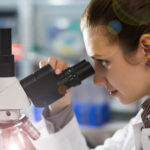
MRSA survival chances predicted by DNA sequencing
University of Bath scientists, publishing in Nature Microbiology, have said sequencing the DNA of MRSA can accurately identify patients most at risk of death and could help medics develop new treatments. MRSA is a Staphylococcus aureus bacterium that has become resistant to most types of antibiotics, and up to 20% of patients with invasive infections … Continue reading MRSA survival chances predicted by DNA sequencing
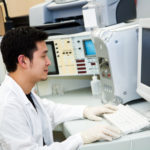
More participants needed for Alzheimer’s disease study
People with Alzheimer’s disease are already helping with a ground breaking government-funded trial led by academics from the Universities of Bristol, Cambridge, Queen’s University Belfast and University College London, and hosted by North Bristol NHS Trust, but even more people are needed to take part in the study (University of Bristol, 2017). The research study, … Continue reading More participants needed for Alzheimer’s disease study

Stimulate your brain when you’re young if you want to stay mentally healthy
Stimulating the brain by taking on leadership roles at work or staying on in education help people stay mentally healthy in later life, according to new research (Bangor University, 2017). The large-scale investigation published in PLOS Medicine and led by Professor Linda Clare of the University of Exeter, recently of Bangor University’s School of Psychology, … Continue reading Stimulate your brain when you’re young if you want to stay mentally healthy

Launch of £13m dementia research centre at Cardiff University
Cardiff University will be playing a major role in the UK’s biggest dementia research initiative with the launch of a £13m dementia research centre (Cardiff University, 2017). With the potential to be awarded a further £17m in research funding over the next five years, the UK DRI at Cardiff University is set to become the … Continue reading Launch of £13m dementia research centre at Cardiff University
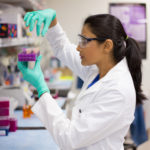
New insights into CMV, the leading viral cause of congenital birth defects
A study led by Cardiff University has revealed why CMV, a virus responsible for 1,000 birth defects each year in the UK, is so adept at evading the immune system (Cardiff University, 2017). The new findings, published in eLIFE, could help in the development of treatments for this and other currently untreatable viruses. By studying … Continue reading New insights into CMV, the leading viral cause of congenital birth defects

Artificial mouse embryos created in the lab
Artificial mouse embryos grown from stem cells in a dish could help unlock secrets of early development and infertility (New Scientist, 2017). Magdalena Zernicka-Goetz at the University of Cambridge and her team made the embryos using embryonic stem cells, the type of cells found in embryos that can mature into any type of tissue in … Continue reading Artificial mouse embryos created in the lab

New research on how bacteria resists last-resort antibiotic
A team of University of Bristol-led researchers has provided the first clues to understand how the mcr-1 gene protects bacteria from colistin, a last resort antibiotic used to treat life-threatening bacterial infections that do not respond to other treatment options (University of Bristol, 2017). Last year, members of the team, led by Dr Jim Spencer … Continue reading New research on how bacteria resists last-resort antibiotic







